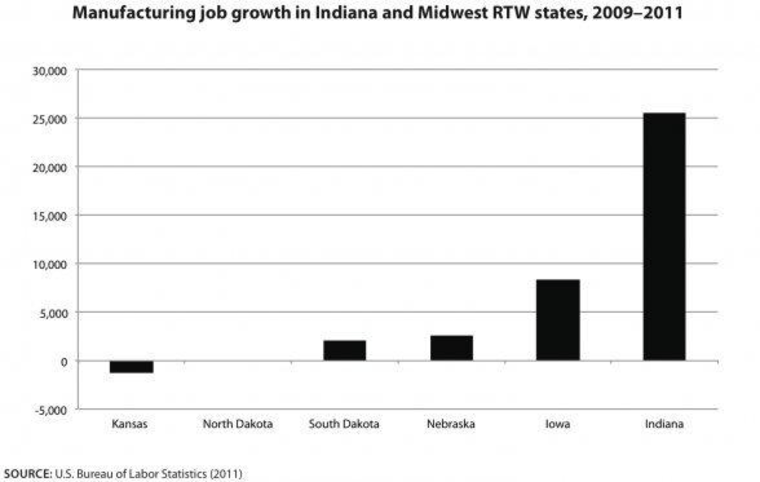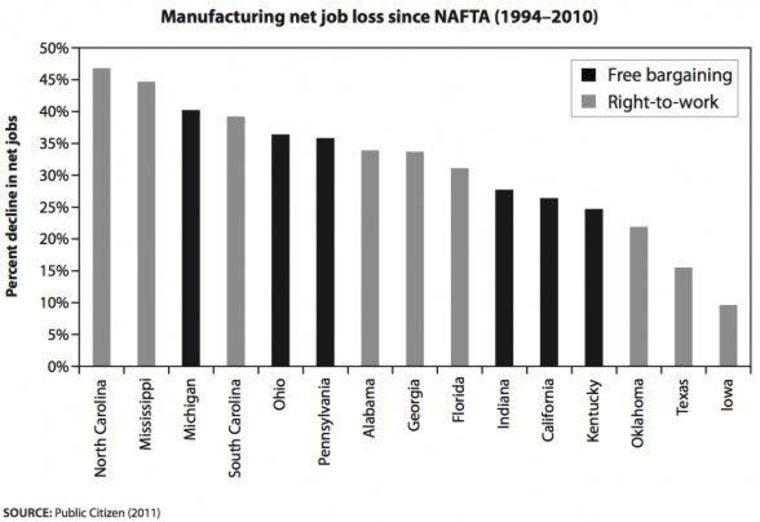Labor unions crossed Michigan Governor Rick Snyder this year, and now he seems intent on making them pay. Snyder had said he was against a ban on union shops known as a "Right to Work" law -- or as unions describe it, "Right to Work for Less." Playing peacemaker, he also opposed the unions trying to pass a referendum enshrining collective bargaining rights in the state constitution. The unions went ahead, the referendum lost, and now Snyder says the unions have to pay.
The Detroit Free Press headline on this reads: "Gov. Rick Snyder now says right-to-work is 'on the agenda.' " A few paragraphs in, we learn that Snyder is willing to make a deal:
He did say that there is a view that unions must put something on the table if right-to-work is not to proceed, after having gone ahead with a collective bargaining ballot proposal against his urging in last month's election.
With clear Republican majorities in the state House and Senate, Snyder could conceivably get a union-stripping bill sent to his desk and signed quite quickly. It's not clear what unions would have to give up in order to ransom their collective bargaining rights. Now that Snyder has changed his mind, the fight in Michigan seems to be totally on.
After the jump, a couple charts on the effects of Right to Work.
Supporters of Right to Work, like American for Prosperity, argue that it frees workers from having to be in unions and businesses from having to deal with unions. On the ground, that tends to result in lower pay. A report from the Economic Policy Institute last year found that wages are 3.2 percent lower in states with Right to Work laws.
As Indiana Republicans worked to pass a Right to Work law last year, they argued that strong union rights were costing the state jobs. Economist Gordon Lafer made these graphs showing that there's no such connection.

Above: Indiana added more jobs than Midwestern states that ban union shops. Below: States that ban unions lost manufacturing jobs after NAFTA; so did ones with strong union rights.

